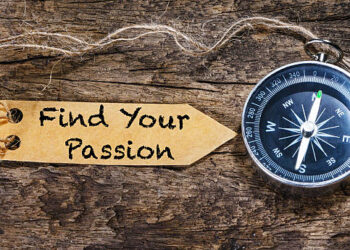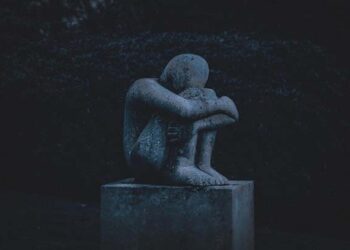
Depression is a mood you cannot fully understand until you have experienced it. This is why many people have been constantly asking the question, “What does depression feel like” on the popular social media forum called Reddit.
A Reddit user who was curious to find out what the day-to-day feelings of someone struggling with depression is asked a few questions to understand what depression feels like. He wanted to know if depression is best described as complete emotional numbness or emotional despair.
Sometimes, we do not understand what sufferers of depression are going through. It is important to understand what depression is and what it feels like. This information can benefit us personally as well as other people going through depression.
What is Depression?
Depression is a mental health condition characterized by persistent feelings of sadness, hopelessness, decreased energy, and loss of interest or pleasure in previously pleasurable activities. It is different from a temporary feeling of depressed mood, in that depression is a persistent, pervasive, and prolonged state of low mood that can impact various aspects of a person’s life.
Different circumstances can trigger anyone to have a depressed mood which is why every one of us has become depressed at least once before. It could be due to problems at work, home, or the actions of other people.
However, depression, as a diagnosis, is a distinct medical/psychiatric condition that is primarily due to a disorder or imbalance of certain neurochemicals that are responsible for regulating mood.
When the balance between excitatory mood and inhibitory mood is pathologically altered in favor of inhibition, depression sets in. This makes depression a disease and not just a normal experience following grief, pain, hurt, etc.
What are the Types of Depression?
According to the DSM-V and ICD-10 classification, the diagnosis and classification of depression is based on the presence of some major and minor symptoms, as well as the duration of the condition lasting for at least 2 weeks (but can be shorter in the ICD-10 if symptoms are unusually severe or of rapid onset).
In ICD–10 the patient must have two of the first three symptoms (depressed mood, loss of interest in everyday activities, reduction in energy) plus at least two of the remaining seven symptoms; while in the DSM–IV, the patient must have five or more out of nine symptoms with at least one from the first two (depressed mood and loss of interest)[1]The classification of depression and depression rating scales/questionnaires – Depression in Adults with a Chronic Physical Health Problem – NCBI Bookshelf.
| ICD–10 | DSM–IV major/minor depressive disorder |
|---|---|
| Depressed mood* | Depressed mood by self-report or observation made by others* |
| Loss of interest* | Loss of interest or pleasure* |
| Reduction in energy* | Fatigue/loss of energy |
| Loss of confidence or self-esteem | Worthlessness/excessive or inappropriate guilt |
| Unreasonable feelings of self-reproach or inappropriate guilt | |
| Recurrent thoughts of death or suicide | Recurrent thoughts of death, suicidal thoughts, or actual suicide attempts |
| Diminished ability to think/concentrate or indecisiveness | Diminished ability to think/concentrate or indecisiveness |
| Change in psychomotor activity with agitation or retardation | Psychomotor agitation or retardation |
| Sleep disturbance | Insomnia/hypersomnia |
| Change in appetite with weight change | Significant appetite and/or weight loss |
The major/core symptoms include; depressed mood, loss of interest in everyday activities, and reduction in energy for the ICD-10 and depressed mood and loss of interest for the DSM-V.
The minor symptoms are as shown in the table above.
Based on these, the following types of depression have been identified.
1. Major depression
Major depression or clinical depression is the usual type of depression doctors diagnose. It is among the most common mental health conditions in the United States.[2]Major Depression – National Institute of Mental Health (NIMH)
The diagnosis of major depression is made in individuals who have experienced five or more symptoms of depression for at least 2 weeks, including at least two core symptoms of depression.
Major depression could occur persistently for a long period or can occur in recurrent bouts which can be monthly, yearly, or a few times in a lifetime.
Major depression has been classified into three subtypes based on severity;
- Mild depression
- Moderate depression, and
- Severe depression.
The table below summarizes the subtypes of major depression.
| ICD–10 depressive episode | DSM–IV major depression | |
|---|---|---|
| Mild | 4 | Minimal above the minimum (5) |
| Moderate | 5–6 | Between mild and severe |
| Severe | 7 + | Several symptoms over 5 |
Other identified subtypes of major depression include Seasonal Affective Disorder, Psychotic Depression, Post-Partum Depression, and melancholia.
Other specific types of depression include Persistent Depressive Disorder.
a. Seasonal Affective Disorder (SAD)
Seasonal affective disorder, or SAD, is a condition in which mood changes exhibit a seasonal pattern. It is a subtype of major depressive disorder that occurs in certain seasons but not all year round.
It is a type of recurring major depression with a seasonal pattern. It is most common during the colder, darker winter months and affects up to 9% of the US population[3]Seasonal Affective Disorder: An Overview of Assessment and Treatment Approaches – PMC. The prevalence of people with SAD tends to increase the further people live from the equator.
The symptoms of SAD include depressed mood, sleep disturbance, weight gain or loss, and increased alcohol consumption. SAD is four times more common in women than in men.
While the exact cause of SAD is unknown, one potential cause of this condition is believed to be a lack of exposure to natural light in the winter months, which may cause disrupted levels of serotonin and melatonin in the body[4]Seasonal Affective Disorder – National Institute of Mental Health (NIMH).
b. Psychotic depression
This type of major depression occurs with episodes of psychosis or delusions. The presence of psychotic symptoms with depression makes it severe depression.
Psychotic depression features psychotic symptoms like paranoia, difficulty understanding what is real or not, persistent false beliefs, and hallucinatory experiences like seeing, hearing, or smelling things that others cannot perceive but are only originating from the person’s mind.
c. Postpartum depression
Postpartum, or perinatal depression, is a type of major depression that happens during or after a pregnancy. The symptoms can range from mild to severe. In rare cases, the symptoms are severe enough that the health of the mother and baby may be at risk[5]Perinatal Depression – National Institute of Mental Health (NIMH).
“Baby blues” is used to describe a feeling of sadness and worry about caring for a newborn in the first few days to 2 weeks after giving birth. When this persists for weeks or months and interferes with the normal daily life of the mother, it is referred to as postpartum depression.
Alongside the usual symptoms of depression, a woman with postpartum depression may also:
- feel numb or disconnected from the baby
- worry about harming the baby
- feel guilt about not being a good parent
- withdraw from loved ones
- cry more often than usual
Research from the Centers for Disease Control and Prevention (CDC) shows that around 1 in 8 women with a recent live birth experience symptoms of postpartum depression[6]Depression Among Women | CDC.
2. Minor Depression
Minor depression is also described as ‘subthreshold depression’ because it does not meet the full criteria for a depressive/major depressive episode. For the diagnosis of minor depression to be made, at least two but less than five symptoms are required, of which one must be depressed mood or diminished interest.
The significance of recognizing this type of depression is that even though less defined than major depression, it has been increasingly recognized as causing considerable morbidity and human and economic costs, and has also been recognized as a risk factor for future major depression.
3. Persistent Depressive Disorder (PDD)
Persistent Depressive Disorder (PDD), formerly known as dysthymia, is a type of depressive disorder characterized by a chronic and persistent low mood.
Unlike major depressive disorder, which involves distinct episodes of severe depressive symptoms, persistent depressive disorder features a long-term, continuous experience of milder but persistent depressive symptoms. It can last up to 2 years and some symptoms can be severe.
PDD is less common than major depression, occurring among 3-6% of the general population[7]Persistent Depressive Disorder – Depression and Bipolar Support Alliance.
Common Causes and Risk Factors For Depression
The primary mechanism in the etiology of depression is the imbalance between excitatory neurotransmitters like dopamine and serotonin and inhibitory neurotransmitters like GABA in the brain.
The specific causes of depression can be classified into the following:
- Genetics: Researchers have learned much about the biology of depression. They have identified genes that make individuals more vulnerable to low moods and influence how an individual responds to drug therapy.
- Stress: Stress, through the release of stress hormones, can alter the balance between brain neurotransmitters and predispose to depression.
- Trauma – Emotional, physical, or psychological: Emotional trauma is one common trigger for depression, especially in those who are already predisposed or vulnerable.
- Medical conditions: Some medical conditions can predispose to depression, especially those that affect the brain and the neurotransmitters of the brain.
- Chronic illness: Illnesses that have stayed longer than 4 weeks without any hope of achieving their cure soon enough can push one who is predisposed to having depression into full-blown depression.
- Drugs and drug abuse: Certain drugs can alter the neurotransmitter level of the brain and can cause depression. Also, drug abuse has been linked to a high incidence of clinical depression among many people.
What Does Depression Feel Like?
People who are going through depression are unable to describe clearly what it feels like but in general, depression feels like a hopeless pit the individual keeps sinking into. Even when there is help available, depressed individuals have the feeling that they don’t deserve anything good.
Depression is a very terrible condition because it can prompt an individual to self-harm, suicidal ideation, or suicide. To better understand how depression feels, the symptoms below will be helpful.
1. Disinterestedness in previously pleasurable activities
This is referred to as anhedonia. It is a lack of interest in things you previously loved. Even though it can happen to just anyone, it is persistent and protracted in clinical depression.
2. Wishing never to exist
Hopelessness about life is another feeling common to people battling with depression. They feel they are worthless to themselves and their family. While they don’t want to hurt other people including their family members, people battling with depression often feel like they should never have been born in the first place.
3. Suicidal thoughts
Suicidal thoughts are cardinal features of major depressive episodes. The consequences of suicide are far-reaching to involve one’s family and loved ones. While depressed individuals don’t contemplate suicide to hurt others, they simply feel that their life is no longer worth living anymore.
4. Lack of motivation
Depression makes one so heavy with no energy left. It’s like dragging oneself through calf-deep mud with no energy to move forward. As all efforts prove abortive, one just wants to sit down and wallow in the mud or even get drowned in it. There is no motivation to overcome it. It just sucks the person right in.
5. Self-isolation or wanting to be alone
This is more obvious in individuals who previously loved to be where the crowd is. Depression makes one feel like turning off any external stimuli like sound, light, noise, or anything that makes one feel alive. These stimulants make a depressed individual overwhelmed because there is no sufficient stimulation from within.
6. Hopelessness and refusal to get help
Even if help should come, a depressed person would still want to remain that way. It makes one feel like they don’t deserve to be happy, and that they cannot be helped anymore. Inflicting emotional pain on oneself feels more satisfying than being happy. This explains the feeling of hopelessness and refusal to get help when in depression.
How To Treat Depression
If you identify any of the symptoms of depression in someone or yourself, it is worth noting that depression is treatable. We have seen that being depressed is different from having depression as the former is usually based on external factors like stress, grief, unmet expectations, and grief.
Depression is a clinically diagnosable disease entity that is characterized by periods of prolonged, or uncontrolled symptoms of depressed mood. Treating clinical depression involves the following modalities.
1. Psychotherapy
Psychotherapy refers to psychological interventions aimed at helping individuals struggling with depression. These interventions include Cognitive-Behavioural Therapy (CBT), Interpersonal Therapy, or Psychodynamic Therapy.
2. Medications/antidepressants
Antidepressant medications are the mainstay of treatment of depression globally. They include Selective serotonin reuptake inhibitors (SSRIs), serotonin-norepinephrine reuptake inhibitors (SNRIs), tricyclic antidepressants, and other classes that help to balance out brain neurotransmitters. Treatment with antidepressants takes several weeks for full therapeutic effects.
3. Electroconvulsive Therapy
Electroconvulsive therapy (ECT) is a brain stimulation intervention that involves the passage of high-voltage pulse electric stimuli to induce a seizure. This has been shown to normalize brain chemistry and is the treatment of choice for severe cases or when other treatment modalities are ineffective.
4. Transcranial Magnetic Stimulation
This is a non-invasive procedure similar to ECT but it uses magnetic fields to stimulate nerve cells in the brain. TMS is also typically considered for individuals who have not responded to antidepressant medications.
5. Lifestyle modifications
Exercise, a healthy diet, and adequate sleep also play a significant role in the treatment of depression. The balance of neurochemicals is efficiently affected by exercise, diet, and sleep.
6. Joining support groups
The role of support groups cannot be over-emphasized in the treatment of depression. Participating in support groups or group therapy provides individuals with a sense of community, shared experiences, and support.
7. Others include self-care, mindfulness, and relaxation techniques, etc.
Final words
Depression is a treatable medical condition. Seek help when you are experiencing symptoms of depression no matter how much internal resistance you get.
Speaking to someone close by about what you are experiencing can be helpful when you are going through depression. You should also consider talking to a therapist or seek the help of a mental health doctor.
There is no room for keeping it to yourself if you have been experiencing depressing symptoms for more than 2 weeks, which is enough to make a diagnosis of major/clinical depression.

















